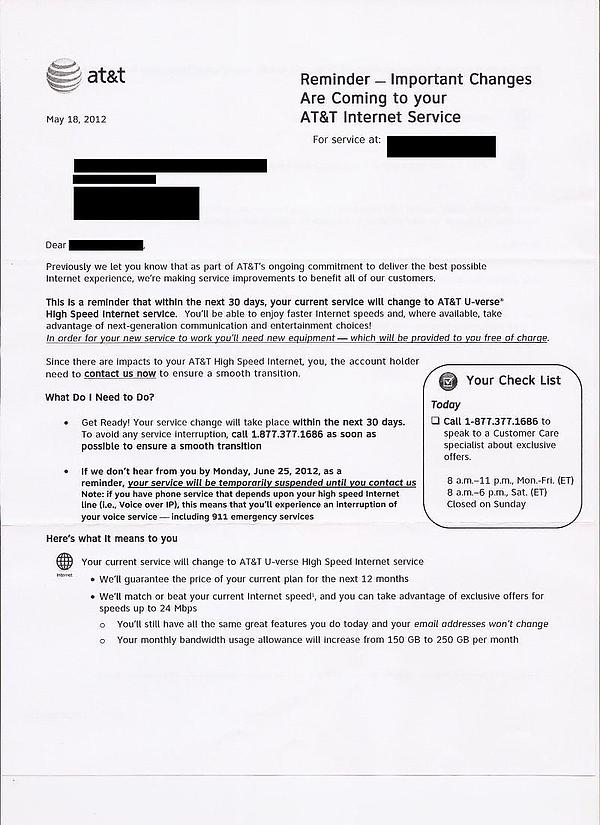
Customers promised big savings from dropping their old Verizon plans found tricks, traps, and speed reductions.
Beware of telemarketers bearing gifts.
Frontier Communications has embarked on a sales push to convince customers adopted from Verizon Communications to “upgrade” their grandfathered Verizon broadband plans to new offerings from Frontier.
But Stop the Cap! has received more than a dozen complaints from customers who discovered their broadband speeds were slashed, sometimes significantly, after taking Frontier up on one of their offers.
“Whenever you call Frontier customer service, they always have an offer for you that they claim will save you money and I fell for it,” Tim Falston says.
Falston has been a Stop the Cap! reader since he learned Frontier Communications was buying out his Verizon landline in 2010.
“Frontier promised me nothing would change after they took over from Verizon, but of course a lot changed when I agreed to switch to a new bundled service package Frontier was offering for my phone and Internet service,” Falston writes.
Falston thought he was keeping his 8Mbps DSL service Verizon had been selling him for nearly five years, only now he would save at least $10 a month bundling some of Frontier’s other products into his package. A few days after signing up, he found his broadband speeds were lacking. It turned out Frontier reduced his speed to just under 3Mbps. A few days later, the company also mailed him a new DSL modem/router that he later learned came with a monthly fee that more than wiped out his “savings.”
“This was the worst decision I ever made, and Frontier never warned me the package I was signing up for cut my speeds more than half and stuck me with a modem I don’t want or need,” Falston said.
Unfortunately, when Falston called Frontier to switch back to his old plan, he was told it was no longer available and he had to choose from Frontier’s current services that came with higher prices and term contracts.
“It’s bait and switch and should be illegal,” Falston said. “I was told that everything about my service was to stay the same if I agreed to their bundle, and I think they figured most people have no idea about speeds and just accept what they are given, but I was never told about the modem or the rental fee that comes with it, and my old Verizon equipment worked just fine.”
Frontier won’t even sell Falston 8Mbps service, even though he had it for half a decade.
“They want to sell me 3Mbps and tell me that is all my line will support,” Falston complains. “That was after I finally convinced them to talk to me — the account is in the wife’s name and Frontier blocked me because of ‘security reasons’ until they spoke with her.”
Stop the Cap! recommended Falston schedule a service call and speak to a local technician about the problem. Experience shows employees on the ground far away from the customer service department can often cut through Frontier’s red tape. That worked for Falston who quickly got his old Verizon plan back after the technician made a few phone calls from Falston’s home.
“The tech shook his head and said he deals with these problems all day long and has managed to get customers back on old plans Frontier’s customer service says are long gone,” Falston said. “He told me specifically ‘do not change any plans you signed up for with Verizon — all of the offers from Frontier come at higher prices and fewer features.'”
So if Frontier has an offer you cannot refuse, refuse it anyway, at least if your old phone company was Verizon Communications. You are probably better off with what you have today.


 Subscribe
Subscribe








